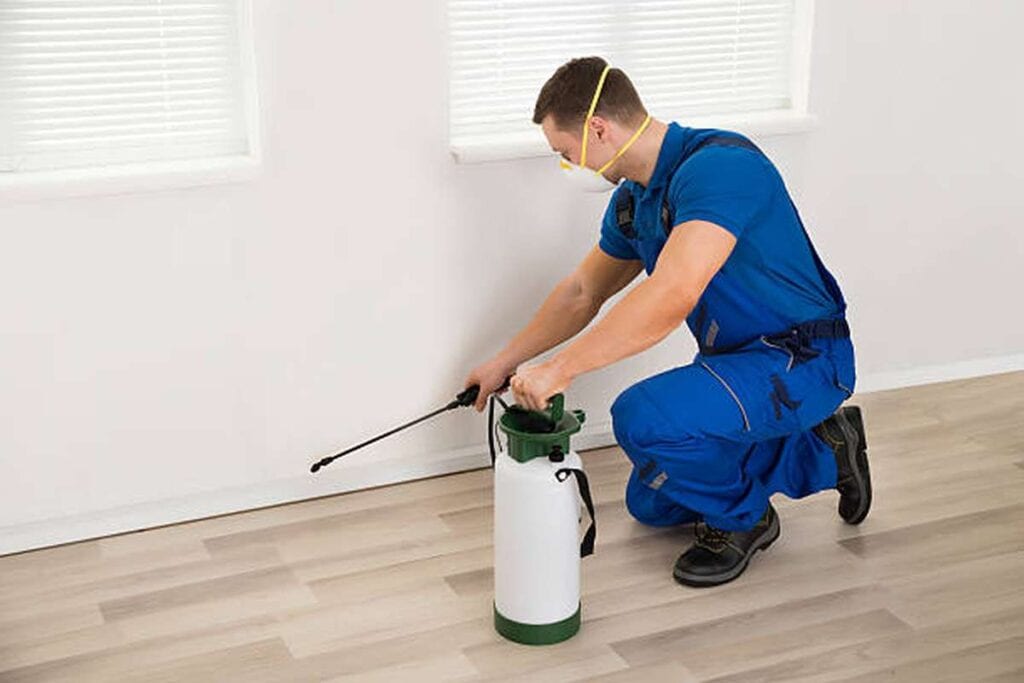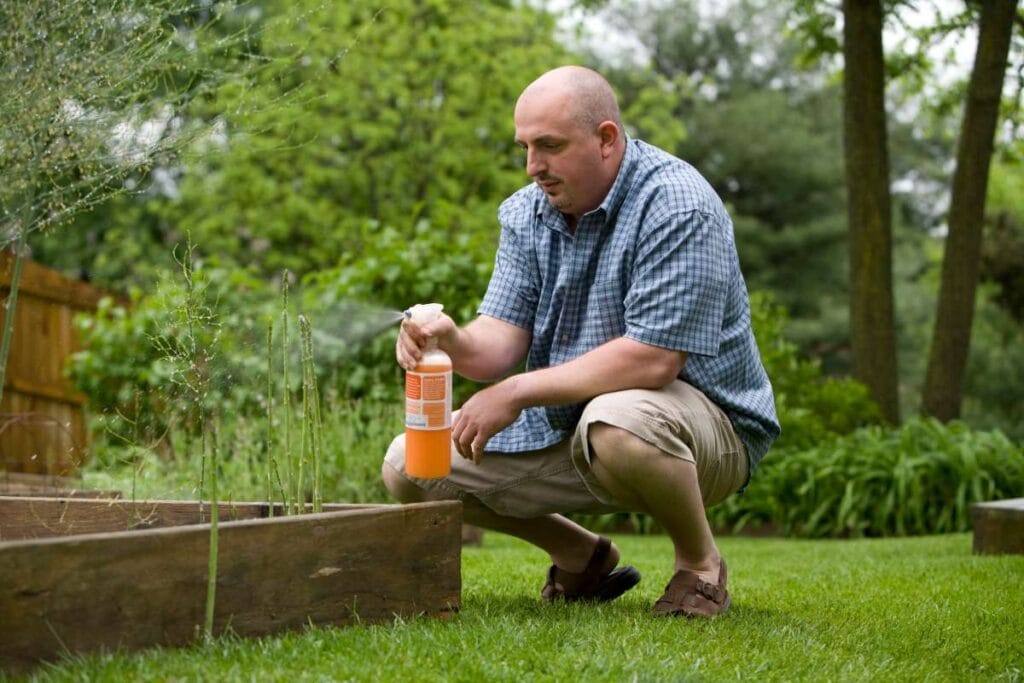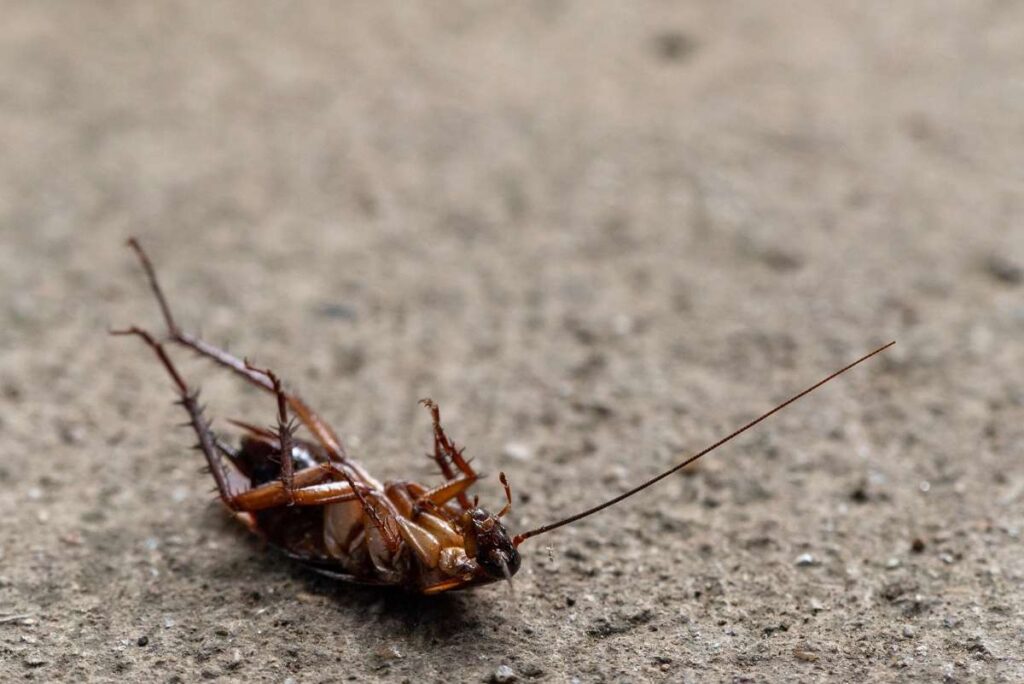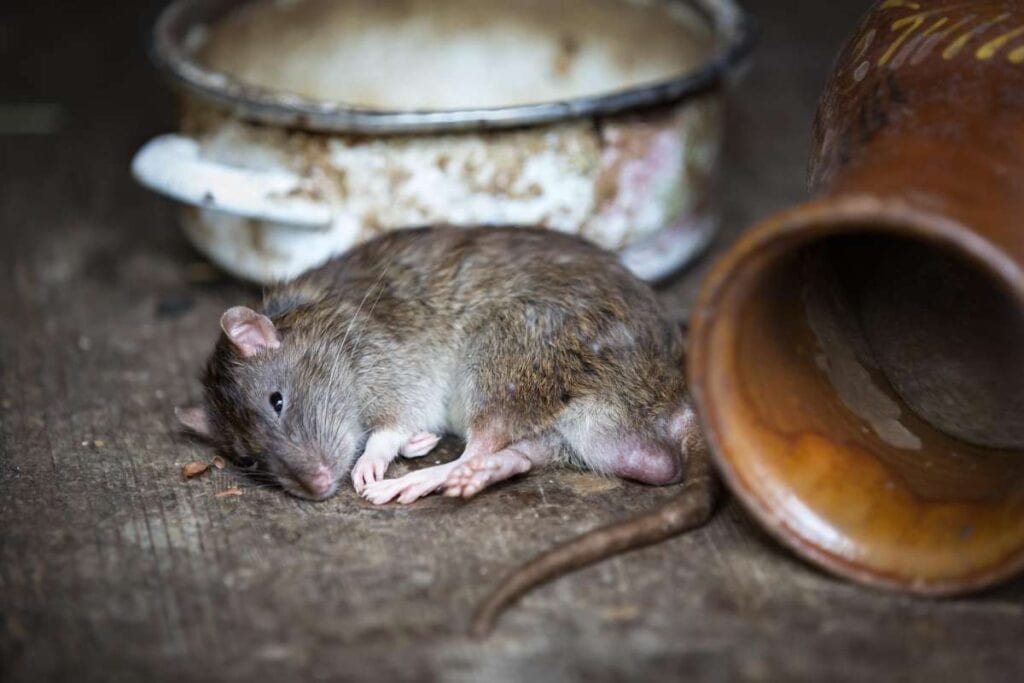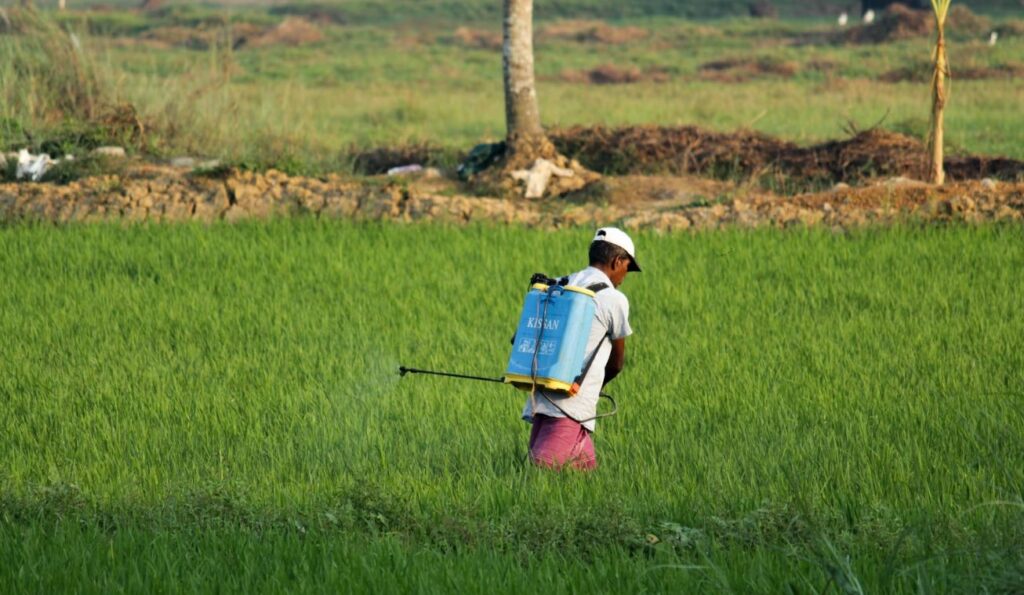Common garden pests will be discussed, along with advice on how to eliminate them, in this post. So if you want a pest-free garden, keep reading!
Types Of Garden Pests
Wildlife and insects are the primary pests of our flower and vegetable plots. What kinds of garden pests you get depends on where you live, but here are some of the most common ones:
Caterpillars: Caterpillars have voracious appetites and use the food they consume to grow into their adult forms, which are butterflies and moths. Spongy moth larvae, also known as gypsy moth larvae, are serious pest that feeds on tree leaves and can cause significant damage to forests. They can strip a tree of all its leaves between spring and fall.
Pests like aphids and thrips can cause significant harm to a plant's foliage, fruit, and roots. According to Chris Plante, district manager for Davey's Tree Care Service in Portland, Maine, aphids is a problem inside and out. They are difficult to spot and threaten many different types of plants, including edibles and decoratives.
Garden destruction by chipmunks, deer, and rabbits is common; skunks, opossums, and raccoons may dig up your yard in search of insects. Gardens may attract a variety of flora and fauna, especially smaller creatures in need of protection from larger predators.
Garden destruction is caused by gophers, moles, and voles, all burrowing animals.
How To Keep Garden Pests Out
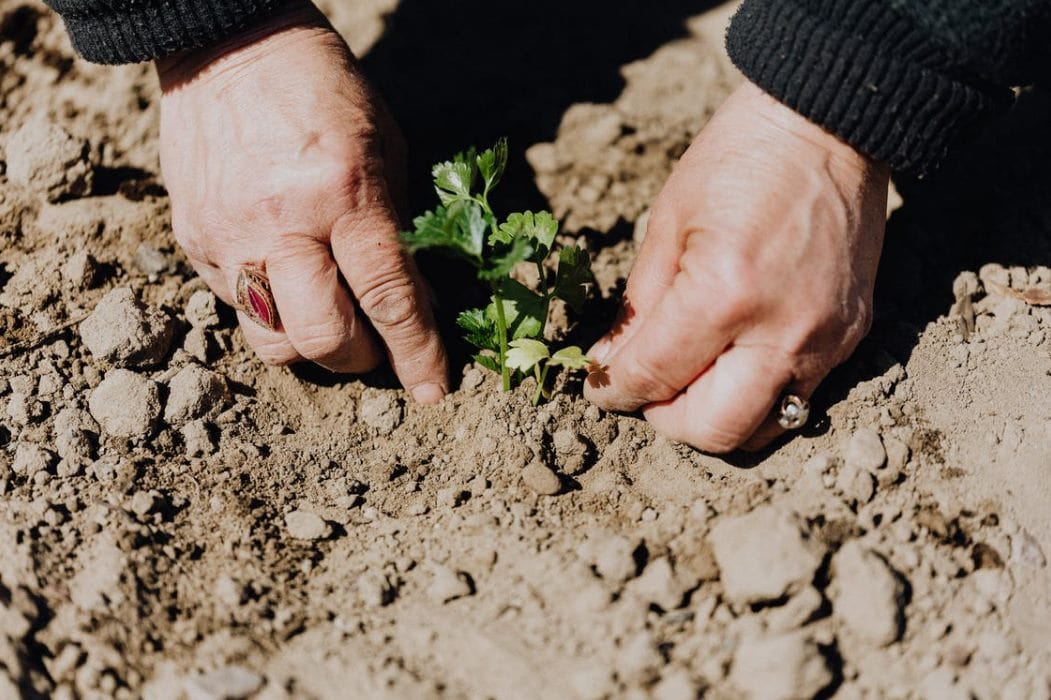
Forget about ever having a pest-free garden. That's the first rule. Plante says, "Every gardener, whether expert or novice, deals with garden pests."
Do you have a pest problem?
All Pests is Melbourne's trusted pest control company. We provide high-quality, affordable pest control services that use child and pet-safe methods. Plus, we offer emergency pest control services, treatments with a guarantee for pest-free premises, and complete care—inspection + treatment + prevention.
We want to help you get rid of your pests once and for all. Our team of experts will work diligently to ensure that your home or business is completely free of any unwanted guests. Contact us today for a free consultation!
Schedule a free inspection on our website now!
Monitoring Pest Insects In The Home Garden
Pests such as insects and mites can quickly invade and overrun a garden. Examine plants in and around the park at least twice weekly throughout the season, focusing on a few plants of each cultivar. Inspect the plant's crown, base, stems, and any developing fruit for hidden treasures.
Identification Of Pests
Learning to identify insects and other arthropods can be challenging; to make things easier, familiarise yourself with common pest species and invest in a hand lens with at least 10X magnification to help identify tiny specimens. This fact sheet features full-colour photographs and detailed descriptions of the most common insect pests. Once the problem has been correctly identified, it can be categorised based on the damage it causes.
Primary Pests
Some of the most harmful pests are munching the plant's valuable parts after being harvested. Therefore, these essential garden pests should be eradicated when found in large numbers. The corn earworm and the tomato fruitworm are two good examples. Pests like insects and mites tend to congregate on leaves and other unharvested plant parts. Low populations of these are usually manageable for gardeners. In many cases, they serve a useful purpose by attracting and supporting people of predatory or parasitic insects or mites that prey on and otherwise control critical pests. Your garden plants' vitality and appearance can be negatively impacted by too many of these pests.
Promote Predation
More diverse plantings, emphasising native species, will help sustain the beneficial insects that prey on pests.
Limit The Spread Of Invasive Species.
Invasive species, such as emerald ash borers, can spread rapidly because they typically have no natural predators.
Insects, diseases, and water shortages all take their toll on plants, but the healthier they are, the better they can withstand these stresses. Soil testing, regular fertilising, not over-tilling, and deep watering are all recommended.
In Other Words, Put Up A Wall.
You'll need a fence at least eight feet high to keep deer out of your yard. Protect your cabbage plants from pests with row covers and keep rabbits away from your garden by planting in raised planters.
Put Some Traps To Use.
Controlling pests before they get to your plants and fruits is possible with the help of pheromones and rodent traps. Put them far from the garden so they won't lure pests there.
How To Get Rid Of Garden Pests
Find out what is attracting pests to your garden and what they need to survive when they get there. When you have all the information, you can make an informed decision. Cultural, mechanical, biological, and chemical methods can all be used to reduce pest populations.
In some cases, chemical treatments may provide quick relief, but they are generally only recommended as a last resort. That's because they treat the issue's effects rather than the cause. Additionally, they can cause harm to birds, wreak havoc on ecosystems, and poison the soil by which plants grow. If you intend to eat your garden's produce, you should probably try some other methods first.
Dead animals and pests can be a real nuisance and health hazard. Are you looking for pest control professionals to help you remove the carcasses of these pests? All Pests Melbourne provides quick, affordable dead animal removal and pest control services that will take care of the problem for you quickly and safely.
Diy Pest Control Methods
Placement Of Plant Life Is Crucial.
Managing pests ahead of time is an essential step before planting any seeds. Selecting a site for development is the initial step.
Light From The Sun
Except in sporadic cases, most food plants need at least six hours of sunlight daily. To maximise their potential, they should be placed in a spot that receives a great deal of sun throughout the day. Lack of light causes plants to thin and weaken, which may not seem like a big deal but is. Pests prefer plants that aren't in good condition.
Plenty Of Room For Vegetation To Grow
Your garden's chances of becoming infected with unwanted pests increase if it is located too close to your ornamental landscaping and if it is overrun with weeds.
Pick Robust Seedlings To Build.
When pests and diseased plants face, it's like Christmas for the problems. It is especially true of young plants like seeds and seedlings. However, before you plant your sprouted seeds or newly purchased seedlings, make sure they have the following essential characteristics:
No Insects
Without a shadow of a doubt, you should only buy pest and disease-free seedlings. The disease will quickly spread to other plants in your garden if you introduce even one infected plant.
Avoid leggy, pale, or otherwise unhealthy seedlings if you want your plants to be strong and healthy enough to fend off pests on their own. It means you will stunt their growth, and their harvests will be meagre.
Don't Forget To Harvest Your Garden Regularly.
It's a sight to behold a gardener at work amidst a riot of colour. However, it serves as ideal breeding and hiding ground for pests, so you should avoid it at all costs. There's also the bonus of wandering from plant to plant. For this reason, frequent harvesting is recommended to keep plants at a manageable size. Also, they can reap the benefits of better air circulation and even light in addition to reduced insect populations.
Spray The Plants When Necessary.
Further, an organic insect spray could be helpful if an issue is discovered. However, there is a crucial point to be made.
Before applying fertiliser, you can give your plants a good rinsing with a high-volume, fine mist sprayer in the morning or at night. At the height of the pest season, you may cover your plants in bugs, but it may take several days to reproduce. Successful gardeners at home have learned this the hard way. During this time, frequently rinsing your plants with water will help you get rid of most migratory pests.
Defeating Rodents
Depending on the circumstances, you can apply pesticides in several ways to eliminate and manage unwanted pests. Spraying your home with an insecticide or pesticide is a standard method for getting rid of insects and other problems. Rat and mouse extermination is a standard service offered by pest control companies, and they use a wide range of methods.
Getting Rid Of Mould And Black Spots The Natural Way
Lack of air circulation, too little space between plants and persistent wet weather can all contribute to fungus problems in the garden. Milk (organic full-cream is best) mixed with water in a 1:10 ratio can be used as a natural repellent or fungicide spray. Stains on clothing can be removed using bicarbonate of soda, vegetable oil, dishwashing soap, and water, and bed bugs and other household pests can be washed away using the same method. Spray plants heavily for treatment or prevention.
Insect-Killing Garlic And Chilli Peppers
All gardeners should have a copy of this in their libraries. Sprays made from garlic or chilli peppers are effective against aphids, caterpillars, and other pests that feed on plant juices. You can swap the raw garlic and chilli for one tablespoon of vegetable oil and a drop or two of dish soap or soap flakes.
If you let the solution sit in a jar overnight, you can spray it on your plants, vegetable garden, or crawl space the next day. Avoiding skin and eye contact with children is a top priority. It is suitable for two weeks of use.
Either Way, Eucalyptus Oil Is A Great Choice.
Horticultural pests such as mosquitoes are among the most annoying problems a homeowner can encounter. The presence of these invasive species makes gardening and outdoor activities more challenging. Eucalyptus oil has been used for centuries as a mosquito repellent.
Also, keep your fish ponds clean so mosquitoes won't breed there and don't let pet food scraps rot in your vegetable gardens.
Do you have large pests in your area? All Pests is the company to call for large pests removal in Melbourne. We have the experience and expertise to take care of any infestation, big or small.
Green Pest Control For Everyone
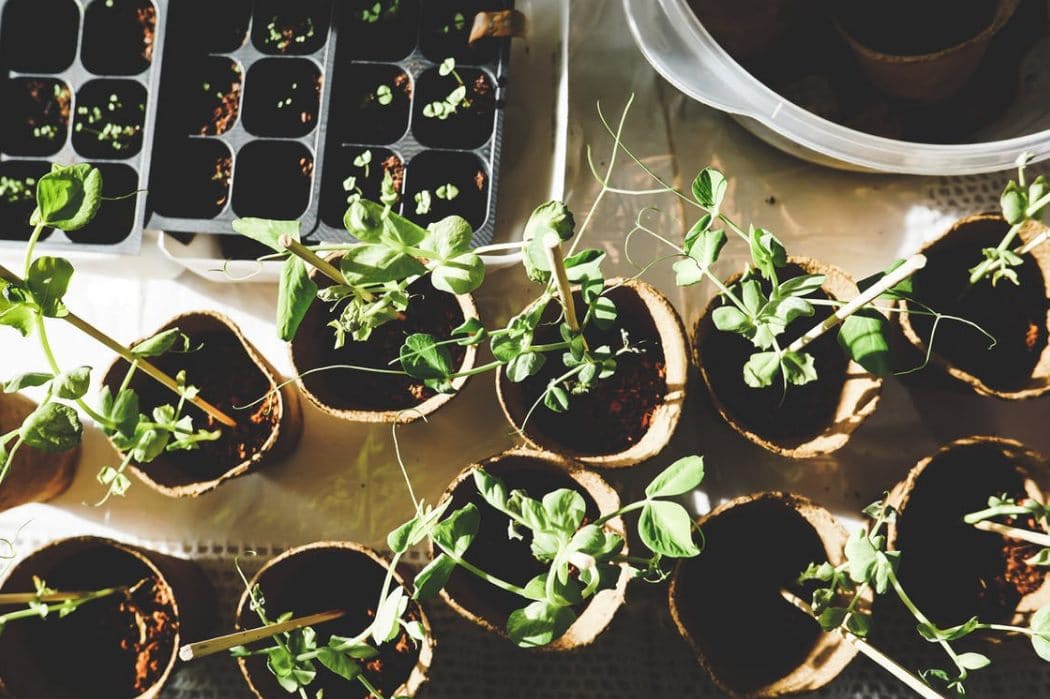
Infestations of unwanted insects and rodents often occur without warning. Anyone's skin would crawl at the mere thought of tiny insects scurrying around in unseen places, such as the walls, cabinets, or even the sheets of their bed. When faced with such an unpleasant circumstance, many people resort to extreme measures, such as overusing potentially harmful chemicals or using unreliable natural pest control forms that can harm children and animals. Do not assume that a technique is harmless to you and your loved ones just because it is labelled "natural" or "DIY." Furthermore, using pesticides on your own is extremely risky without carefully adhering to the product's instructions.
More of a product doesn't always equal better results—wasteful and potentially harmful use of pesticides. Employing pest control methods that are gentler on the environment also protects the health of your family and the neighbourhood. The links below can be helpful whether you're trying to avoid a pest problem or already have one.
Best Practices For Eco-Friendly Pest Management
Do: Implement Pest Control Preventative Measures
Eliminating pests requires proactive measures. Do not allow water to pool anywhere on your property. You should give your dog clean water daily, add aeration to any pools or ponds, and store away any garden tools that could rust in a puddle.
Eliminate all potential insect habitats, including food and shelter. Clean up promptly after preparing a meal, and don't leave fruit or other snacks unrefrigerated for long periods.
Get rid of the cracks and crevices that pests can use to sneak inside. Fix any holes in the walls or torn screens on your windows and doors.
Do: Think Before You Bring Something New Into Your House
In the summer, yard sales are plentiful, making them ideal for sprucing up your home. It's also the season that insects love. Secondhand items, such as furniture, clothing, and other things, may have been lying around in an infested home, garage, or basement before you bought them. Before bringing any used furniture or clothing into your home, ensure you thoroughly inspect it.
Diy Pest Control Methods Are Not Always Foolproof; Keep That In Mind.
While do-it-yourself projects may appear to save money, they come with their own problems. When pests invade a home, they can wreak havoc on the respiratory systems of both humans and pets. Numerous pests carry disease, attack humans and animals, and even wreck buildings. When dealing with a pest problem, time is of the essence in terms of eradication. DIY natural home security measures often fall short of providing adequate protection.
Get Rid Of Pests The Right Way Without Harming The Planet — Contract Pest Control Experts.
When applied by trained professionals, pesticides pose almost no risk to human health or the environment and can be used confidently in and around the home. It's essential to find out if the pest control company you're thinking of hiring is committed to using environmentally safe practices.
Don'ts: Common Mistakes People Make When Trying To Keep Pests Out Of Their Homes
Never: Apply A Pesticide Without First Studying The Warnings On The Label And Getting Educated On How To Protect Yourself And Your Family.
An overabundance of more troublesome pests could result from improper or excessive pesticide use, which could negatively impact these beneficial insects. It is essential to select a pesticide that is effective against the specific pest you intend to eliminate. The professionals know how to eliminate the pests causing problems without harming the insects that are helpful to your garden.
You Should Not: Bring Outdoor Chemicals Inside
Many choices are available when searching for an effective pest management strategy. Various pesticides are available, each with its unique mode of action and pests designed to eradicate. Different pesticides are approved for indoor and outdoor use. Make sure you're getting the right product by reading the label thoroughly.
Don't: Attempt To Increase Product Effectiveness By Using More Of It.
It's not a good idea; the suggested dose is the safest and most efficient dose for use.
Chemicals Should Not Be Kept Where Children Or Pets Can Get To Them.
If you want to use bait, you should probably reconsider. It could be dangerous if there are children or pets in the house. Dogs, cats, and kids all have the potential to get into trouble if they come into contact with poisons, traps, or baits.
Conclusion
When dealing with pests, prevention is always preferable. That means you should learn about the most common problems and the methods for eliminating them. Everything you could need is here, from how to recognise it to how to avoid it and what to do about it once you notice it, and even how to treat it. Are you prepared to begin eliminating the pests that have invaded your garden? Go on then!
Content Summary
- That probably means it's time to start planning for garden pest control if you own a home.
- Common garden pests will be discussed, along with advice on how to eliminate them, in this post.
- What kinds of garden pests you get depends on where you live, but here are some of the most common ones:Caterpillars: Caterpillars have voracious appetites and use the food they consume to grow into their adult forms, which are butterflies and moths.
- Pests like aphids and thrips can cause significant harm to a plant's foliage, fruit, and roots.
- Learning to identify insects and other arthropods can be challenging; to make things easier, familiarise yourself with common pest species and invest in a hand lens with at least 10X magnification to help identify tiny specimens.
- This fact sheet features full-colour photographs and detailed descriptions of the most common insect pests.
- Therefore, these essential garden pests should be eradicated when found in large numbers.
- Protect your cabbage plants from pests with row covers and keep rabbits away from your garden by planting in raised planters.
- Controlling pests before they get to your plants and fruits is possible with the help of pheromones and rodent traps.
- Find out what is attracting pests to your garden and what they need to survive when they get there.
- Managing pests ahead of time is an essential step before planting any seeds.
- Avoid leggy, pale, or otherwise unhealthy seedlings if you want your plants to be strong and healthy enough to fend off pests on their own.
- Further, an organic insect spray could be helpful if an issue is discovered.
- Before applying fertiliser, you can give your plants a good rinsing with a high-volume, fine mist sprayer in the morning or at night.
- During this time, frequently rinsing your plants with water will help you get rid of most migratory pests.
- Spraying your home with an insecticide or pesticide is a standard method for getting rid of insects and other problems.
- Spray plants heavily for treatment or prevention.
- Employing pest control methods that are gentler on the environment also protects the health of your family and the neighbourhood.
- In the summer, yard sales are plentiful, making them ideal for sprucing up your home.
- When dealing with a pest problem, time is of the essence in terms of eradication.
- DIY natural home security measures often fall short of providing adequate protection.
- Get Rid Of Pests The Right Way Without Harming The Planet — Contract Pest Control Experts.
- It's essential to find out if the pest control company you're thinking of hiring is committed to using environmentally safe practices.
- It is essential to select a pesticide that is effective against the specific pest you intend to eliminate.
- If you want to use bait, you should probably reconsider.
- When dealing with pests, prevention is always preferable.
- That means you should learn about the most common problems and the methods for eliminating them.
FAQs About Pest Control
Chemicals manage them. Pesticides, chemicals used to kill or otherwise control pests, are widely used in homes and businesses across the globe. Pesticides are typically categorised based on the type of pest they are designed to eradicate.
Hygiene, biological, chemical, physical, fumigation, fogging, and heat treatment are some of the many options available for eradicating unwanted pests.
For a small infestation, doing it yourself is a good and inexpensive option.
Check your plants often and act as soon as you spot a problem.
Various small mammals include rabbits, voles, woodchucks, deer, chipmunks, and squirrels. Vegetable gardens provide food for everyone.


